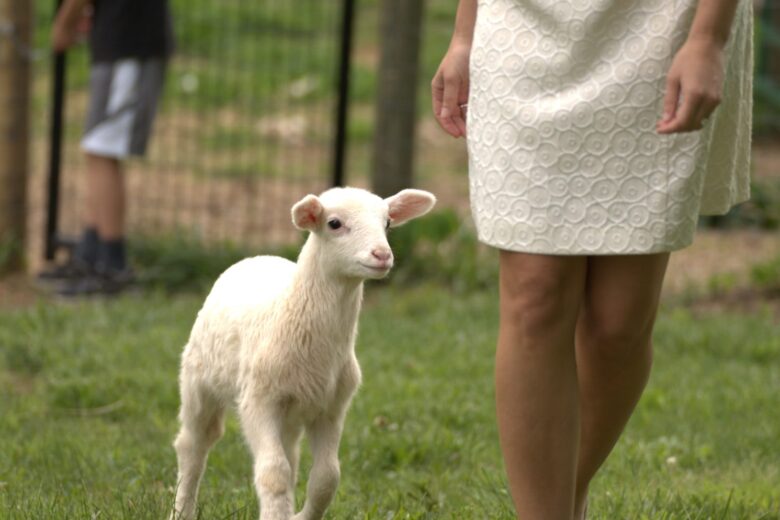“Want to take care of a bottle lamb?” Wade held his phone. The question lingered.
Such lambs must be hand-fed with a bottle rather than nursed by their mothers because either the mother sheep has died or cannot produce enough milk. Sometimes, the ewe rejects the lamb (a common occurrence when she has multiples), or the lamb is too weak to nurse on its own. Raising these lambs requires close attention to milk replacer ratios and more math than I care to consider in the wee hours of the morning —and they don’t always survive.
“His mother died,” Wade continued.
It was late, and we were dragging in from a baseball game. Our to-do list for springtime is longer than a country mile. Laundry piles grew before my eyes as the boys tossed down grass-stained jerseys. The garden is a mostly empty patch of mud. I’m half-in on a painting project that I’d love to finish someday. I took a deep breath. I was sorry for the little creature but resolved to save myself the hassle and heartache of a neighbor’s bottle lamb.
Then he showed me the picture. Fuzzy, helpless, precious.
Wade recognized all my roller-coaster emotions with a knowing smile: “The boys and I will pick him up after church in the morning.” I just nodded.
Bright and early the next day, we made ready for the new resident. I wondered if it was all worth it. The time, the effort, the potential grief and sorrow. Then, somewhere between combing little boys’ hair, the drive to the church, the many conversations between the doors and the pew, I’d long forgotten about the little lamb.
Until…
“Lamb of God, you take away the sins of the world, have mercy on us.”
The congregation and I were standing, praying the Agnus Dei (“Lamb of God”), echoing a Name of Jesus first proclaimed by St. John the Baptist. The title draws directly from the Old Testament sacrificial system, particularly the Passover. Remember the Israelites in bondage to the Egyptians. Before the final plague, God’s people were instructed to sacrifice an unblemished lamb, cover their doorposts with its blood, and consume the lamb. Then, the angel of death would “Passover” their home and spare them. Christ fulfills this and is the true Passover (Paschal) Lamb. He who was sinless (unblemished) was sacrificed on the Cross for our sins.
As Catholics, we believe that the Eucharist, the bread and wine, become the Body, Blood, Soul, and Divinity of Jesus Christ, not merely symbols of such. It’s a belief rooted in Sacred Scripture, highly anticipated throughout the Old Testament, then declared definitively by Christ (at the Last Supper in Matthew 26:26-28, Mark 14:22-24, Luke 22:19-20, and don’t forget the repetitious teaching in John 6, or in Revelation how Heaven is centered on the worship of the Lamb of who was slain).
“Lamb of God, you take away the sins of the world, have mercy on us.”
The boys named the bottle baby “Isaac,” because he was almost sacrificed on my self-made Altar of Convenience. For over a month, Isaac has blessed us with a constant (or at least 3 times a day) reminder that life is fuller when we follow the example of our Good Shepherd: when we give of ourselves.
Isaac doesn’t understand the hands that feed him, like us, as we gather around the Lord’s Table. We can’t comprehend the mystery, but we receive the gift as one not earned but lovingly given. Thank God, Jesus didn’t count the cost. He considered us and never wavered. To Him, we were always worth it. In the Eucharist, the Lamb is our strength, and the Shepherd’s mercy mends every weary heart.
“Lamb of God, you take away the sins of the world, grant us peace.”
